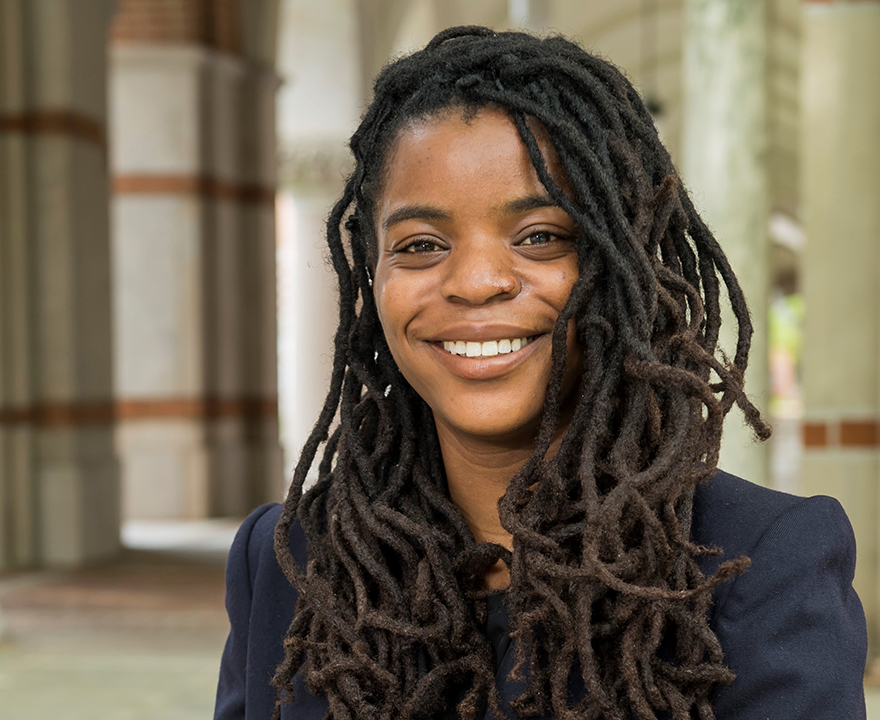Study: Having a friend, partner or mentor of a different race reduces racial apathy in white teens

Study: Having a friend, partner or mentor of a different race reduces racial apathy in white teens
- July 26, 2022
- Findings, coauthored by UCI sociology assistant professor Asia Bento, published in Sociological Perspectives
-----
As blatant acts of racial violence - including the recent mass shooting at a Buffalo supermarket by a white gunman that ended the lives of 10 innocent, unarmed Black people - dominate national headlines, another subtler form of prejudice is gaining traction. Racial apathy, or not caring about or being indifferent to racial inequality, is dangerous because it renders racism ignorable.
Researchers – including UCI sociologist Asia Bento – have homed in on factors that impact racial apathy, particularly among white teens during their critical, socially impressionable adolescent years. Findings, published in Sociological Perspectives, indicate that interracial contact - specifically having a friend, dating partner or mentor of a different race - reduces racial apathy.
“Studying racial apathy among white teenagers matters because they represent the future electorate, and while most whites no longer deny racial inequality exists, a majority aren’t taking direct actions to remedy it,” says Bento who joined the UCI sociology faculty as an assistant professor this month following completion of her doctorate at Rice University.
Additional researchers include Tony N. Brown, sociology Distinguished Professor, Rice University; Julian Culver, sociology postdoctoral researcher, Brown University; Raul S. Casarez, sociology assistant professor, Boise State University; and Horace J. Duffy III, research specialist in the Houston Independent School District.
The study pulls from the 2003 National Study of Youth and Religion. The random telephone survey of 3,290 English- and Spanish-speaking 13- to 17-year-olds, along with their parents, captured information about race, religion, political views, education, dating, morals, friendship groups and more. For this study, researchers focused on the responses of the 1,927 participants who identified as white.
On questions of interracial contact, one-quarter of the teen participants reported having a different race mentor, while 23 percent reported ever dating interracially; 33 percent reported having a different race friend, and nearly 68 percent attended mixed-race religious services. Just 5 percent lived in a multi-race household.
Using regression analysis, researchers dove deeper into the data to determine whether interracial contact predicted less racial apathy and across which specific measures.
“We found singular experiences – such as attending mixed-race religious services - did not substantially reduce racial apathy,” says Bento. “Instead, the accumulation of interracial contact experiences across multiple settings reduced racial apathy. And specifically, only 3 out of the 5 interracial contact experiences - different race mentor, interracial friendship, and interracial dating - increased a white adolescent’s likelihood of caring about racial inequality.”
Researchers used the data to construct a high racial apathy profile, determining the individual would be an older boy living in the south whose parents earned less than a high school education, is not religious, has poor academic outcomes, and avoids interracial relationships or contacts.
“These findings have political significance when considering that 70 percent of U.S. citizens will live in 15 states by 2040, meaning 30 percent of voters will choose the majority of U.S. Senators,” says Bento. “The 30 percent are more likely to be older white men living in racially homogeneous places. These characteristics coincide with a high racial apathy profile, positioning racially apathetic individuals as influential in future elections.”
Findings are available online at https://journals.sagepub.com/doi/full/10.1177/07311214221104041.
-pictured: Asia Bento, courtesy of Rice University
-----
Would you like to get more involved with the social sciences? Email us at communications@socsci.uci.edu to connect.
Share on:
Related News Items
- Careet RightUCI sociologists earn American Sociological Association honors, leadership roles
- Careet RightStudy: Black-owned banks support protective credit markets, but are not a vehicle for equity
- Careet RightMultiple honors for UCI soc sci's Maricela Bañuelos
- Careet RightUCI social sciences pilot projects taking on racism
- Careet RightMeet Asia Bento, Assistant Professor and Dean's Fellow, Sociology


